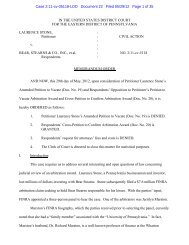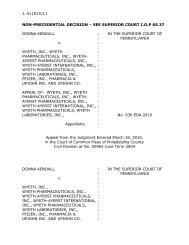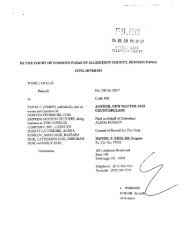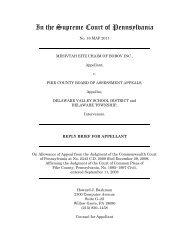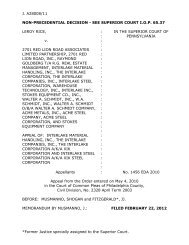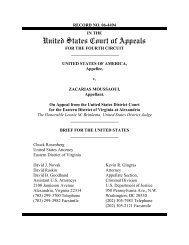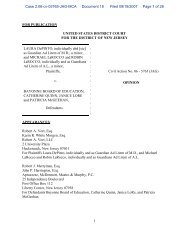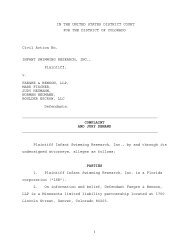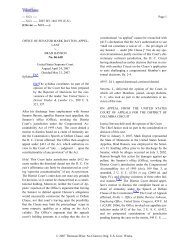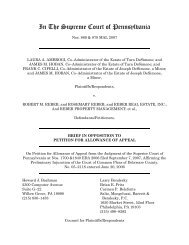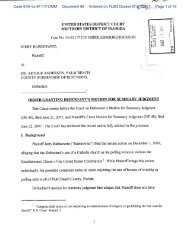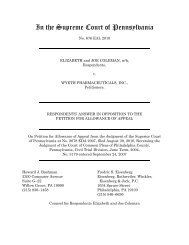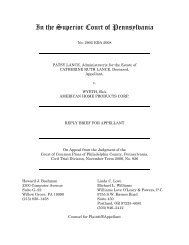petition for rehearing en banc - How Appealing
petition for rehearing en banc - How Appealing
petition for rehearing en banc - How Appealing
Create successful ePaper yourself
Turn your PDF publications into a flip-book with our unique Google optimized e-Paper software.
Case: 07-4080 Docum<strong>en</strong>t: 108 Filed: 10/29/2010 Pages: 15<br />
Nos. 07-4080, 08-1030, 08-1072, 08-1106 3<br />
be convicted of honest-services fraud. But if it is not<br />
op<strong>en</strong> to reasonable doubt that a reasonable jury would<br />
have convicted them of pecuniary fraud, the convictions<br />
on the fraud counts will stand. Hedgpeth v. Pulido, 129<br />
S. Ct. 530, 531-32 (2008) (per curiam); see Neder v. United<br />
States, 527 U.S. 1, 15-16 (1999); United States v. L.E. Myers<br />
Co., 562 F.3d 845, 855 (7th Cir. 2009); United States v. Cappas,<br />
29 F.3d 1187, 1192 (7th Cir. 1994); United States v. Jackson,<br />
196 F.3d 383, 386 (2d Cir. 1999). “An instructional error<br />
arising in the context of multiple theories of guilt no<br />
more vitiates all the jury’s findings than does omission<br />
or misstatem<strong>en</strong>t of an elem<strong>en</strong>t of the off<strong>en</strong>se wh<strong>en</strong> only<br />
one theory is submitted.” Hedgpeth v. Pulido, supra, 129<br />
S. Ct. at 532 (emphasis in original).<br />
The case would still have to be remanded to the<br />
district court <strong>for</strong> res<strong>en</strong>t<strong>en</strong>cing unless it was reasonably<br />
certain that the judge would have imposed the same<br />
s<strong>en</strong>t<strong>en</strong>ces ev<strong>en</strong> if the charge of honest-services fraud<br />
had not be<strong>en</strong> submitted to the jury. Suppose no reasonable<br />
jury would have failed to find pecuniary fraud.<br />
Nevertheless that same jury, having be<strong>en</strong> instructed on<br />
honest-services fraud, might have found the def<strong>en</strong>dants<br />
guilty of honest-services fraud as well. The judge<br />
would th<strong>en</strong> have be<strong>en</strong> incorrectly s<strong>en</strong>t<strong>en</strong>cing the<br />
def<strong>en</strong>dant <strong>for</strong> two crimes rather than one. She might<br />
think honest-services fraud the more serious crime, or<br />
at least that it made the def<strong>en</strong>dants’ conduct more repreh<strong>en</strong>sible<br />
and so merited heavier overall s<strong>en</strong>t<strong>en</strong>ces.<br />
We begin with def<strong>en</strong>dant Black’s argum<strong>en</strong>t that the<br />
submission of that charge to the jury contaminated his<br />
conviction of obstruction of justice, and that there<strong>for</strong>e



